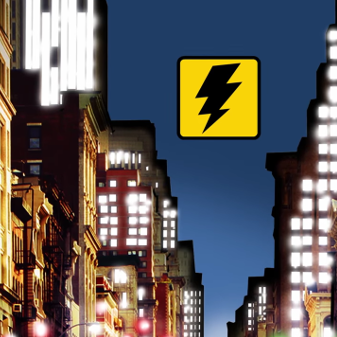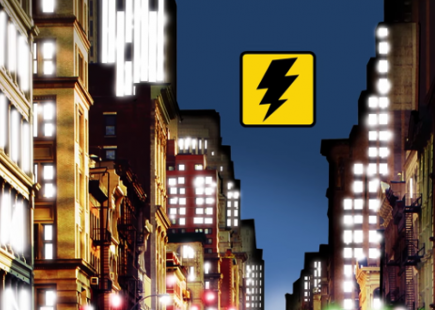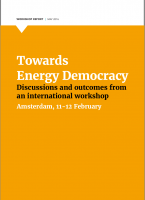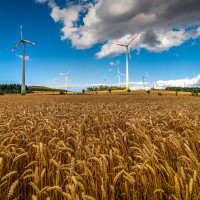People powered cities: from the UN climate talks to energy democracy
Topics
World leaders are at the UN Climate Talks (COP22) this week. Developing real solutions to climate and energy challenges will require imagination, determination and inspiration. Inspiration may come from the many cities, communities and even countries that are working hard to make the energy sector democratic, equitable and based on renewable sources.


COP22 has kicked off in Marrakesh, Morocco. This “action COP” will focus on implementing the Paris agreement, which came into effect on November 4th. Countries that signed and ratified the agreement must report increasingly stronger carbon-cutting plans every five years. Unfortunately, “stronger” does not go far enough when drastic changes are required. Energy production, consumption and access needs to be transformed. Carbon emission levels demand urgent action. “Stronger” means little, particularly when the Paris agreement demands only voluntary reductions. The agreement aims to limit global warming to 2 degrees but lacks the hard rules required to ensure real action by national governments. Without a sincere transformation of the energy sector, we could easily see a temperature rise of 2.7 degrees or higher.
Leaving governments to determine how far they will cut carbon emissions poses another problem. Governments will want to keep their national economies strong and will be tempted by ideas put forward by big business, many of which are half measures or false solutions. Replacing high-carbon energy with low-carbon energy, for instance, does not pave the way for sustainable and socially-just societies. Switched On London (SOL), the campaign for energy democracy in London, has demonstrated that energy production, distribution and supply must be democratised if the energy transition is to be fair and effective.
SOL calls for a new municipally-owned energy company with a democratically elected board, with energy company employees, local authorities and ordinary residents making up a third of its membership each. On top of that advisory board, neighbourhood assemblies and local community generation schemes would ensure every citizen, whether a customer or not, has the chance to participate. The proposal aims to tackle energy poverty and guarantee sufficient clean energy for all Londoners. SOL is currently pressuring Sadiq Khan, mayor of London, who publicly endorsed the proposal for a new municipal energy company, to make sure the public company will truly embody SOL’s vision of energy democracy.
London is not alone in these efforts. The animated energy democracy video, including perspectives from campaigners, researchers and unionists, and the new website energy-democracy.net lays out a vision of energy democracy as imagined in many other places around the world.
Since 2011 the people of Boulder, Colorado, have actively supported the set-up of a new municipal energy company. Their efforts have intensified since private coal utility Xcel Energy began work to block the city’s plans. Co-developed by citizens, the plan aims to incentivise all sectors of society to take part in producing renewable energy, for example through shared solar gardens; tackle energy poverty by providing extra support to vulnerable communities; and create local green jobs.
Many cities are fighting for a just and equitable energy transition, but the concept of energy democracy is not limited to the municipal scale.
Costa Rica is an impressive example of a country with effective democratic renewable energy delivery. Its four large electricity cooperatives supply energy to 392,071 people, most of whom live in rural settlements where neither state-owned nor for-profit companies were interested or able to operate. These cooperatives are wholly owned by energy users and community members.
Uruguay’s public energy company, UTE, has taken energy democracy to the national level. With its 2005-2015 Energy Plan, the country set out to reduce costs and dependency on imported oil and achieve energy sovereignty. Some 57 percent of Uruguay’s total energy supply and at least 94 percent of domestically generated electricity is based on renewables. The expansion of the renewable energy sector created thousands of green jobs – greater than the number of jobs in the fossil fuel sector – and led to a significant drop in costs.
These examples are promising but there is no silver bullet. Energy democracy could prove to be a long and difficult pursuit, especially when confronted with trade agreements like the Trade in Services Agreement (TiSA). These agreements jeopardize the freedom of countries, cities and communities to choose renewable, locally produced energy, by restricting government choices and protecting and privileging big businesses. In 2015 the government of Uruguay withdrew from negotiations following warnings from unions and civil society about the social and environmental risks TiSA represents. TiSA’s leaked energy annex confirms these concerns.
It shows that the agreement will probably prohibit governments from differentiating between fossil fuel and renewable energy companies and prevent them from deprivatising and democratising the energy sector. Similar concerns have been raised about EU trade deals with the US and Canada (TTIP and CETA) and the Trans-Pacific Partnership (TPP). A real response to the climate crisis, including successful implementation of the Paris agreement and COP22, depends on serious reform of our approach to trade deals.
Trade is just one half of the problem with business interference in the climate response. The climate crisis and energy poverty – compounded by corporate extractivism – will not be overcome by ‘solutions’ proposed by the profit-driven private sector. Often these so called solutions are precisely the problem. Morocco, the host of the COP, exemplifies this. The Struggle for Energy Democracy in the Maghreb , a study by the Rosa Luxembourg Foundation, shows that residents of Tangier, Rabat and other Moroccan cities are protesting water and energy privatisations and price hikes. Promoted under the banner of Public Private Partnerships (PPPs), these deals disguise an outright sell-off to the private sector. Meanwhile, the Moroccan government continues to take out loans from International Financial Institutions to pay the private sector for producing renewable energy. The local population will not benefit, particularly considering a significant part of the energy created is exported to the European Union.
In contrast to the false solutions that put private interests first, energy democracy serves local, sustainable and socially-just development by prioritising people. People powered cities and countries, from London, Boulder, Berlin and Bristol to Costa Rica and Uruguay, are delivered by collective power, which requires cooperation on every level. Energy Democracy is about connecting families, workers, communities and cities and forging alliances with fossil free campaigns, anti-fracking groups, climate justice activists and many other social movements.
Collaborating to build democratic, sustainable and equitable energy economies demonstrates that systemic, people-based solutions to the fossil-fueled climate crisis are not only possible but within reach.
This article is part of the launch of the 10-minute video and the website on energy democracy. Both are produced by a network of civil society organisations, unions, academics and campaigners which research and advocate for collectively-owned, socially just, renewable energy.
Watch the video:



